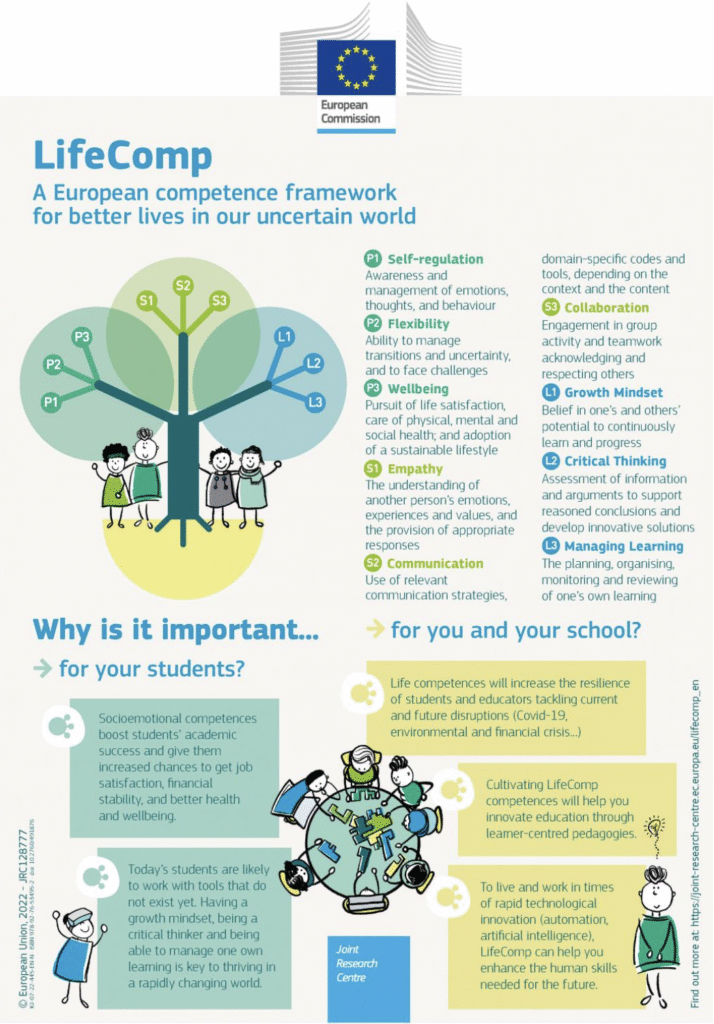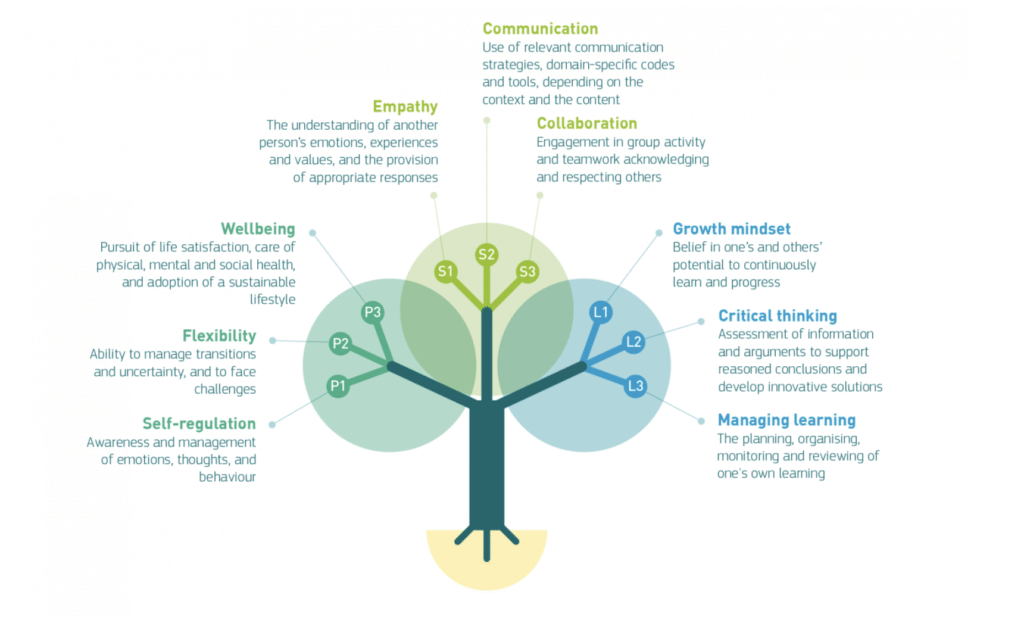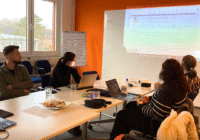In today’s world, change feels like the only constant. Technology evolves faster than we can keep up, the job market looks different every year, and social challenges seem to grow more complex. For young people, it’s not enough to just “know things” anymore – they need to understand themselves, relate to others, and keep learning throughout life.
That’s where LifeComp, the European Framework for Personal, Social and Learning to Learn Competence, comes in.
Developed by the European Commission’s Joint Research Centre, LifeComp is basically a roadmap for developing the skills that help us all live, learn, and grow – not just survive. For youth workers and organizations involved in Erasmus+, it’s an incredibly useful tool for creating meaningful learning experiences that go beyond formal education.
What is LifeComp, in simple terms?
LifeComp identifies nine competences across three main areas — personal, social, and learning to learn.
-
Personal competences are about knowing and managing yourself — things like self-regulation, flexibility, and wellbeing.
-
Social competences are about connecting with others — empathy, communication, and collaboration.
-
Learning to learn competences focus on how we grow — developing a growth mindset, thinking critically, and managing our own learning.
Together, these skills build the foundation for lifelong learning and active citizenship — exactly what Erasmus+ and youth work are all about.
Why LifeComp matters for young people
Young people today are growing up in a world full of uncertainty. Jobs come and go, social media shapes identity, and the pressure to “figure life out” is intense. LifeComp helps by putting the focus on what really matters: developing the competences that allow us to adapt, connect, and thrive.
Here’s how it makes a difference:
- It prepares young people for change.
Resilience, flexibility, and emotional awareness are just as important as digital or professional skills. LifeComp helps young people face change with confidence and curiosity rather than fear. - It supports wellbeing.
Self-regulation and balance are at the heart of LifeComp. In youth work, this might mean helping participants manage stress, practice mindfulness, or simply reflect on what makes them feel good and purposeful. - It encourages lifelong learning.
Learning doesn’t stop when school ends. LifeComp reminds young people that growth is a lifelong process — and that curiosity, self-reflection, and goal-setting are skills worth developing for life.
Why LifeComp matters for youth workers
Youth work is all about supporting growth: helping young people discover who they are, what they care about, and how they can shape the world around them. But sometimes it’s hard to put that growth into words or frameworks that others can recognize.
That’s where LifeComp becomes a real game-changer. It gives youth workers a shared European language to describe what we do every day: helping people learn to live, learn, and relate better – not just gain knowledge.
- It helps make the invisible visible.
So much of what happens in youth work is subtle: a participant learns to manage frustration, to listen better, or to step up as a leader. These aren’t always easy to measure, but they’re deeply valuable. LifeComp helps us name these competences (empathy, self-regulation, collaboration) and make their development intentional and visible. - It brings more purpose to project design.
When we design Erasmus+ projects, LifeComp helps us go beyond logistics and activities. It encourages us to think about what kind of growth we want to spark. Whether it’s a youth exchange that strengthens intercultural empathy, or a leadership training that builds resilience and a growth mindset – LifeComp helps us plan with clarity and direction. - It supports reflection and recognition.
Youth work is not just about doing, it’s about making sense of what we do. LifeComp provides a structure for guided reflection – helping participants see how they’ve grown and helping youth workers communicate those outcomes. This also supports recognition tools like Youthpass, making learning more tangible and empowering. - It strengthens our role as educators.
By embracing LifeComp, youth workers reinforce their place as key educators in non-formal learning. We’re not just facilitators of activities – we’re mentors who nurture emotional intelligence, critical thinking, and lifelong learning habits. LifeComp validates this mission and connects it to a broader European vision for education and active citizenship.
In short, LifeComp helps youth workers do what they already do best, but with more clarity, confidence, and credibility. It bridges the gap between experience and learning, turning everyday moments into lifelong competences.
For us at Monomyths, it’s also a reminder that youth work is life work. Every Erasmus+ project, training course, youth exchange or local activity is an opportunity to nurture these essential life competences – and to help young people grow into confident, reflective, and compassionate citizens.






